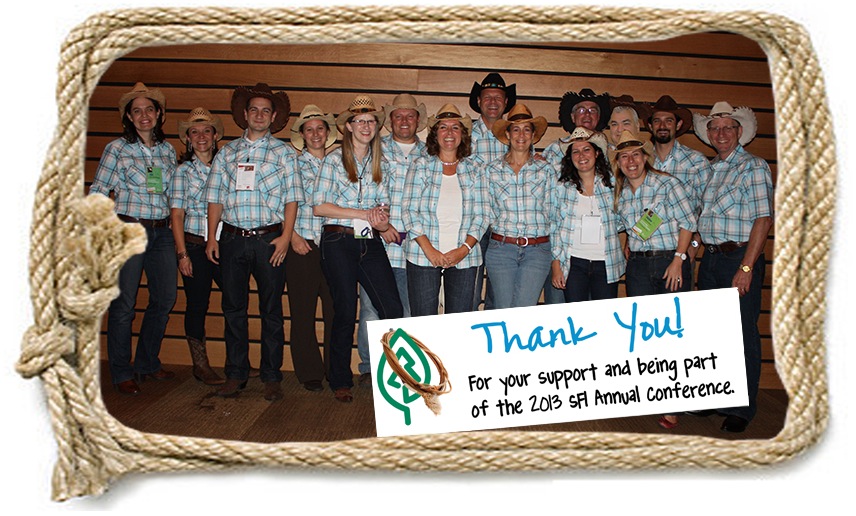Each year, our Annual Conference provides an opportunity for the SFI community — from landowner to brandowner, from youth to elder — to come together and learn about new research in conservation; renew partnerships and make new ones; and exchange ideas about how to improve forestry practices for the sake of healthy, thriving forests upon which all of us rely. In short, the SFI Annual Conference is a time to connect, cooperate, grow and improve.

We’ll soon post the conference presentations and a highlights video, but in the meantime, here’s a taste for those who couldn’t join us: Our panels included fascinating reports from Todd Gartner of World Resources Institute and Dan Casey of the American Bird Conservancy on conservation projects funded by SFI to, respectively, measure the positive impact of forest certification on water quality and reverse declines of important bird populations in the Pacific Northwest.
We also benefited from the perspective of two SFI customers – George D’Urso , Director of Sustainability for Corrugated Packaging at Rock-Tenn Co. and Hal Rahn, president of Norcom, Inc. – who told us that SFI is crucial to their businesses, and will be increasingly important as customers grow more focused on sustainability and responsible sourcing of forest products.
We were inspired by three board members who exemplified the importance of operation in pursuit of our shared goals: Chair Larry Selzer, Dick Brinker and John Crowe, representing the environmental, social and economic sectors of the forestry community. And we heard from Chief David Walkem and Don Motanic, head of the Intertribal Timber Council, about how SFI works to support sustainable forestry in indigenous communities.
The SFI Forest Partners Program announced the addition of more than 100,000 acres of land certified to the SFI Standard by the South Carolina Forestry Commission and Clemson University – a testament to the power of cooperation among many stakeholders in support of responsible forestry across the supply chain. But we’re not resting on our laurels; we’re rolling up our sleeves to keep pushing toward the Forest Partners Program goal of certifying 5 million acres (2 million hectares) of forests to the SFI Standard by 2014 and 10 million acres (2 million hectares) by 2017.
We also recognized the exemplary achievements of the Georgia, Maine and Minnesota SFI Implementation Committees, who won the Annual Achievement Award. And Soterra LLC and the Pollinator Partnership were recognized with the Leadership in Conservation Award for new research on the habitat of honey bees and other native pollinators in forested ecosystems.
And this year’s President’s Award went to Hans Wegner, Chief Sustainability Officer of the National Geographic Society, for his lifelong commitment to the environment and his leadership in sustainable forestry. National Geographic Society became a founding Forest Partner in 2012, and Hans has been instrumental in raising awareness of the benefits associated with utilizing forest certification as a proof point for sourcing forest products responsibly and for modeling sustainability principles into daily decisions.
SFI also started Writing the Next Chapter in a literal sense as we took the next step in the Standard Review process that will result in the new 2015-2021 SFI Standard. In San Antonio we held the first of 10 Standard Review Workshops, with well over 120 participants engaged in a lively discussion about the current Standard and their priorities for the next one. Our next Workshop will be held in Washington, D.C., in November, and we’ll have eight regional workshops in 2014 to solicit feedback on the draft 2015-2021 Standard.
Speaking of 2014, next year’s Annual Conference will be held in Montreal on September 16-18 – so save the date. I look forward to more cooperation and collaboration with all of you in Montreal, and on many days in between.
